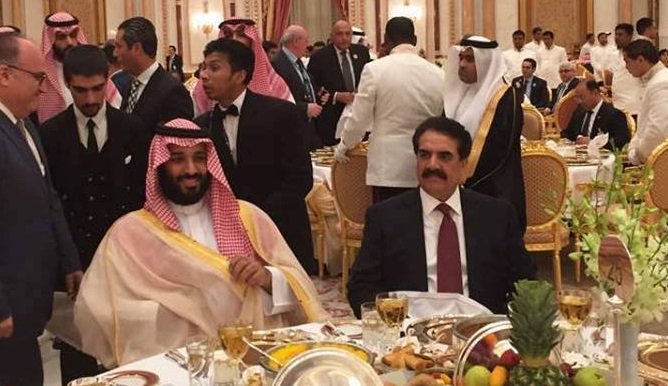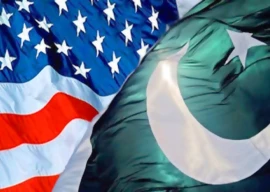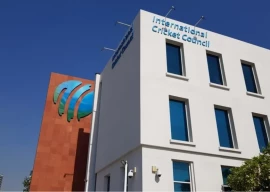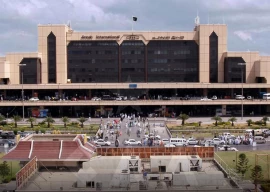
The report states that Pak-Saudi relationship is often been seen as "being rooted in the personal relationships between Pakistani prime ministers and Saudi kings rather than formal institutions” but notes that the recent trajectory suggests its heading in a “strategic direction” as the ties become institutionalised and “increasingly address both countries’ strategic interests.”
Pakistan looks to China, Saudi Arabia for succour
Described as “probably one of the closest relationships in the world between any two countries without any official treaty” by the former head of Saudi Arabia’s General Intelligence Directorate, Prince Turki Al-Faisal, the relationship has seen decades of cooperation during the Soviet invasion of Afghanistan, the first Gulf War and post-9/11 defence diplomacy.
“The military ties between Riyadh and Islamabad date back to the early 1960s when the Pakistani army contributed to the establishment of the Saudi armed forces. It also assisted the Royal Saudi Air Force with the introduction of their first fighter jets. There are over 1,200 Pakistani trainers in various Saudi security and military sectors, either under the Ministry of Interior or the armed forces.”
Noting the snags in the relationship, the report expands on the parliament’s opposition to the military involvement in the Saudi-led coalition in the ongoing war in Yemen which “sparked controversy and questions about the essence of strategic relations between the two countries.”
“However, Pakistan’s decision not to join their Saudi allies in that war was largely due to domestic preoccupations; these include fighting al-Qaida and the Taliban and dealing with rebels from the country’s southwestern Balochistan region. These issues have left Pakistan domestically exhausted and have influenced Islamabad’s decision to stay out of the Yemeni conflict so as to avoid opening up an additional front with Iran, the Houthi’s powerful external patron and source of resources, which could contribute even further to instability inside Pakistan.”
The ties enhanced exchange of capital flows from Saudi investors in return for military cooperation, added the report. “According to the last available statistics, the value of trade exchange from mid-2012 to mid-2013 reached US$5 billion. Over the preceding decade (from 2002 to 2012) the value of trade exchange reached approximately US$30.7 billion. Saudi Arabia’s motives for capital investment in Pakistan have not only been financial, for the Saudis have offered support in more difficult times, and without direct commercial interests.”
Pakistan offers Saudi Arabia strategic pact
In 2005, Riyadh donated US$10 million in humanitarian aid following the earthquake in Kashmir. “When floods swept across Pakistan in 2010 and 2011, Saudi Arabia granted Pakistan $170 million for relief operations and reconstruction activities in the affected areas.”
More recently, Islamabad and Riyadh pledged to strengthen economic ties with a preferential trade agreement benefitting Crown Prince Mohammed bin Salman’s Vision 2030. “This is seen as addressing the previously grey area of ties between two countries where no one quite knew what was being signed and by whom.”
Reflecting further on the ties, the commentary highlighted two recent Saudi delegations aimed at exploring trade investments and defence ties, sharing intelligence to combat terrorism, and form strategic working groups to handle the future development of relations.
“The Crown Prince, who also acts as Defence Minister, received the Chief of Staff of the Pakistani Army, General Qamar Javed Bajwa, in Riyadh in February to discuss bilateral military relations, with a particular focus on how to strengthen and develop military training, joint exercises, and the exchange of military expertise. The Saudis have given support to Pakistan in combating extremism. In a recent press conference, Saudi Foreign Minister Adel Al-Jubeir praised its partner and announced that Pakistan had a role to play in sharing with the world the lessons it had learned from its own war on terror".
The relationship has found its sphere in Pakistan’s ambitious project with China; the China-Pakistan Economic Corridor (CPEC) “with a view to undertaking investments at Gwadar Port, which will strengthen the trade exchange between the two countries.”


1732003896-0/Zendaya-(1)1732003896-0-165x106.webp)
1731914690-0/trump-(26)1731914690-0-165x106.webp)
1732003946-0/BeFunky-collage-(70)1732003946-0-165x106.webp)
1731996868-0/Untitled-design-(7)1731996868-0-270x192.webp)










1731749026-0/Copy-of-Untitled-(3)1731749026-0-270x192.webp)






COMMENTS
Comments are moderated and generally will be posted if they are on-topic and not abusive.
For more information, please see our Comments FAQ